Yunhe PAN
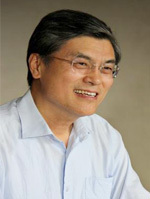 Yunhe Pan (1946.11.4 - ), born in Hangzhou, Zhejiang Province, is an expert in computer application. He graduated from the Department of Architecture, Tongji University, Shanghai in 1970. After graduating as master of Computer Science in Zhejiang University in 1981, he served there as a professor, Chairman of Computer Science & Engineering Department, and Directors of Artificial Intelligence Institute and Industrial Design Institute of Zhejiang University. From May 1995 to August 2006, he served as the President of Zhejiang University. From June 2006 to June 2014, he served as the Executive Vice President of the Chinese Academy of Engineering. He is a member of CPPCC Standing Committee and Director of CPPCC’s Foreign Affairs Committee from March 2013. He is also a member of the Academic Degrees Committee of China’s State Council, Vice Chair of China Economic and Social Council, Director-General of the China Association of Inventions, Director-General of Innovation Design Alliance of China and the Honorary Director-General of China Image and Graphics Association.
Yunhe Pan (1946.11.4 - ), born in Hangzhou, Zhejiang Province, is an expert in computer application. He graduated from the Department of Architecture, Tongji University, Shanghai in 1970. After graduating as master of Computer Science in Zhejiang University in 1981, he served there as a professor, Chairman of Computer Science & Engineering Department, and Directors of Artificial Intelligence Institute and Industrial Design Institute of Zhejiang University. From May 1995 to August 2006, he served as the President of Zhejiang University. From June 2006 to June 2014, he served as the Executive Vice President of the Chinese Academy of Engineering. He is a member of CPPCC Standing Committee and Director of CPPCC’s Foreign Affairs Committee from March 2013. He is also a member of the Academic Degrees Committee of China’s State Council, Vice Chair of China Economic and Social Council, Director-General of the China Association of Inventions, Director-General of Innovation Design Alliance of China and the Honorary Director-General of China Image and Graphics Association.
Yunhe Pan is one of the pioneers in the field of intelligent CAD and computer arts. He has been engaged in computer graphics, computeraided design, artificial intelligence and industrial design research for a long time. He has undertaken many important research projects, published many articles and achieved serious important research results in the fields of computer art, intelligent CAD, digital heritage preservation, and digital libraries, which had won several national, provincial and ministerial level scientific and technological awards.
Yunhe Pan was elected as the member of the Chinese Academy of Engineering in 1997.
Raj Reddy
 Dr. Raj Reddy is the MozahBint Nasser University Professor of Computer Science and Robotics in the School of Computer Science at Carnegie Mellon University. From 1960 to 1963, Dr. Reddy worked as an Applied Science Representative for IBM Corp. in Australia. He was an Assistant Professor of Computer Science at Stanford from 1960 to 1969. He joined the Carnegie Mellon faculty as an Associate Professor of Computer Science in 1969. He became a full Professor in 1973, and a university professor in 1984. He served as the founding Director of the Robotics Institute from 1979 to 1991 and as the Dean of School of Computer Science from 1991 to 1999.
Dr. Raj Reddy is the MozahBint Nasser University Professor of Computer Science and Robotics in the School of Computer Science at Carnegie Mellon University. From 1960 to 1963, Dr. Reddy worked as an Applied Science Representative for IBM Corp. in Australia. He was an Assistant Professor of Computer Science at Stanford from 1960 to 1969. He joined the Carnegie Mellon faculty as an Associate Professor of Computer Science in 1969. He became a full Professor in 1973, and a university professor in 1984. He served as the founding Director of the Robotics Institute from 1979 to 1991 and as the Dean of School of Computer Science from 1991 to 1999.
Dr. Reddy received a BE degree from the Guindy Engineering College of the University of Madras, India in 1958 and an MTech degree from the University of New South Wales, Australia, in 1960. He received a Ph.D. degree in Computer Science from Stanford University in 1966. Dr. Reddy's research interests include the study of human-computer interaction and artificial intelligence. His current research interests include Million Book Digital Library Project; Fiber to The Village Project, and Learning by Doing. His professional honors include: Fellow of the Institute of Electrical and Electronics Engineers, Fellow of the Acoustical Society of America, Fellow of the American Association for Artificial Intelligence, Member of the National Academy of Engineering and Member of the American Academy of Arts and Sciences. He was president of the American Association for Artificial Intelligence from 1987 to 1989. He is a recipient of the IBM Research Ralph Gomory Fellow Award in 1991.
Dr. Reddy was awarded the Legion of Honor by President Mitterand of France in 1984 and Padma Bhushan by President of India in 2001. He was awarded the ACM Turing Award in 1994, the Okawa Prize in 2004, the Honda Prize in 2005, and the Vannevar Bush Award in 2006. He served as co-chair of the President's Information Technology Advisory Committee (PITAC) from 1999 to 2001. He has been awarded honorary doctorates (Doctor of Science HonorisCausa) from SV University, Universite Henri-Poincare, University of New South Wales, Jawaharlal Nehru Technological University, University of Massachusetts, University of Warwick, Anna University and the Indian Institute for Information Technology (Allahabad), Andhra University and IIT Kharagpur. He serves on the Board of Governors of Peres Institute for Peace in Israel.
Bohu Li
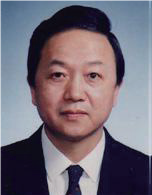 Bohu Li is an expert of computer simulation and integrated manufacturing. He is a professor/doctor director/president of the Institute of Automation Science and Electron Engineering in the Beijing University of Aeronautics and Astronautics; deputy director of the Science and Technology Committee of Second Academy of the China Aerospace Science & Industry Corporation; president of the Chinese Association for System Simulation; and a member of the Advisory Committee of the international journal Simulation Theory & Practice.
Bohu Li is an expert of computer simulation and integrated manufacturing. He is a professor/doctor director/president of the Institute of Automation Science and Electron Engineering in the Beijing University of Aeronautics and Astronautics; deputy director of the Science and Technology Committee of Second Academy of the China Aerospace Science & Industry Corporation; president of the Chinese Association for System Simulation; and a member of the Advisory Committee of the international journal Simulation Theory & Practice.
He was president of the Beijing Institute of Computer Application & Simulation Technology; president of the Beijing Simulation Center; head of the Fifth (1997-2001) China High Tech & Research Plan 863/ Contemporary Integrated Manufacturing System (CIMS) Subject Expert Steering Committee; a member of the Expert Steering Committee of Automation Area in the China High Tech & Research Plan 863; and a member of the directors committee of the Society of System Simulation International.
He authored or co-authored 160 papers, 11 books and 4 translated books in the fields of modeling and simulation, concurrent engineering and contemporary integrated manufacturing system.
He has got one first-class scientific award, two second-class scientific awards and one third-class scientific award by the state, and 10 scientific awards by the Ministry of Aerospace and Astronautics.
Bohu Li was elected as the member of the Chinese Academy of Engineering in 2001.
Bernhard Mueller
 Bernhard Mueller is the Director of the Dresden-based Leibniz Institute of Ecological Urban and Regional Development (IOER) and Professor for Spatial Development at the Technische Universität Dresden. He is also the initiator and head of the Managing Board of the internationally oriented Dresden Leibniz Graduate School (DLGS) which deals with issues of sustainable urban and regional development. Bernhard Mueller has a doctoral degree in Geography from the University of Mainz, and completed his habilitation in urban and regional planning and development at the University of Hanover. He received an honorary doctoral degree from the Slovak University of Technology. His professional interests are in sustainable development as well as urban and regional resilience.
Bernhard Mueller is the Director of the Dresden-based Leibniz Institute of Ecological Urban and Regional Development (IOER) and Professor for Spatial Development at the Technische Universität Dresden. He is also the initiator and head of the Managing Board of the internationally oriented Dresden Leibniz Graduate School (DLGS) which deals with issues of sustainable urban and regional development. Bernhard Mueller has a doctoral degree in Geography from the University of Mainz, and completed his habilitation in urban and regional planning and development at the University of Hanover. He received an honorary doctoral degree from the Slovak University of Technology. His professional interests are in sustainable development as well as urban and regional resilience.
Bernhard Mueller was a Vice President of the Leibniz Association, one of the major non-university research organisations in Germany. He is a member of the German Academy of Science and Engineering (acatech), the Saxonian Academy of Sciences, and the German Academy for Spatial Research and Planning (ARL). He is also an international member of the Serbian Academy of Engineering Sciences. He has been working as an evaluator for several European research programs. He was a member of the Advisory Council for Regional Policy and Planning of the Federal Republic of Germany, and of the Environmental Research Council of the State of Saxony. Currently, he is a member of Policy Unit No. 6 on “Urban Spatial Strategies: Land Market and Segregation” for Habitat III (Quito 2016).
Wen Gao
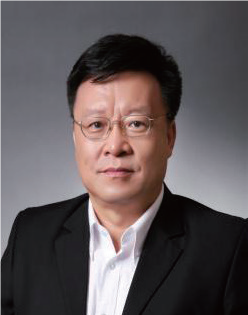 Wen Gao is a professor in Computer Science at Peking University and Vice President of the National Natural Science Foundation of China. Before joining Peking University in 2006, he was professor in the Institute of Computing Technology, Chinese Academy of Sciences (1996 -2005) and professor in Harbin Institute of Technology (1991-1995). Wen Gao received his PhD in Electronic Engineering from University of Tokyo in 1991.
Wen Gao is a professor in Computer Science at Peking University and Vice President of the National Natural Science Foundation of China. Before joining Peking University in 2006, he was professor in the Institute of Computing Technology, Chinese Academy of Sciences (1996 -2005) and professor in Harbin Institute of Technology (1991-1995). Wen Gao received his PhD in Electronic Engineering from University of Tokyo in 1991.
Prof. Wen Gao works in the areas of multimedia and computer vision, including video coding, video analysis, multimedia retrieval, face recognition, multimodal interfaces, and virtual reality. He published six books and over 700 technical articles in refereed journals and proceedings in above areas. He earned many awards including six National Awards in Science and Technology Achievements. He has been featured by IEEE Spectrum in June 2005 as one of the "Ten To Watch" among China's leading technologists. He is a fellow of IEEE, a fellow of ACM, and a member of Chinese Academy of Engineering.
Gary Hack
 Gary Hack is a planner and urban designer with broad experience in shaping urban development in cities of all sizes. He is a former principal of Carr Lynch Hack and Sandell in Cambridge, and dean emeritus of the School of Design, University of Pennsylvania. He is currently professor emeritus at Penn and MIT, and a visiting professor of urban design at Tsinghua University in Beijing and Chongqing University.
Gary Hack is a planner and urban designer with broad experience in shaping urban development in cities of all sizes. He is a former principal of Carr Lynch Hack and Sandell in Cambridge, and dean emeritus of the School of Design, University of Pennsylvania. He is currently professor emeritus at Penn and MIT, and a visiting professor of urban design at Tsinghua University in Beijing and Chongqing University.
He has practiced urban design in over 40 cities of the world, focusing on waterfront planning, mixed use developments, residential developments, and downtown revitalization. His projects include planning the redevelopment of Prudential Center Boston, planning the West Side Waterfront in New York and Rockefeller Park at Battery Park City, and a new metropolitan plan for Bangkok Thailand. He collaborated with Studio Libeskind on the winning design for rebuilding the World Trade Center in New York and headed the team preparing the design guidelines that are shaping the ongoing development. His recent work includes preparing a transportation vision for the Longwood Medical Area in Boston, a new central area plan for Bogota, Colombia and an ecological new town in Southwest Russia. His recent research includes a studies of cultural districts in China and the performance of walkable local commercial centers in the US.
Gary Hack is the co-author of Local Planning, Site Planning, Global City Regions, and Urban Design in an International Context and many articles and chapters. He has taught at Penn, MIT, Tsinghua and Chongqing University, and lectured widely. He has served as chair of the Philadelphia City Planning Commission and serves on many boards. Gary Hack received his B.Arch from the University of Manitoba, a M.Arch and M.U.P from the University of Illinois, and a PhD in urban studies and planning from MIT. In 2006, he was awarded an honorary Doctor of Laws degree at Dalhousie University.
Zhiqiang Wu
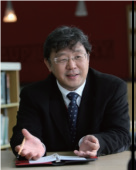 Prof. Zhiqiang Wu gets his Doctor's degree from Technical University of Berlin and currently is Vice President of Tongji University, professor and doctoral tutor of College of Architecture and Urban Planning, Academician of Royal Swedish Academy of Engineering Science, and Honorary Fellow of American Institute of Architects. He also serves as Chief Planner of EXPO 2010 Shanghai, Co-Chair of International Steering Committee of World Planning School Congress, Permanent Member of UNESCO-UIA World Architectural Education Council, Member of Advisory Committee - Creative Economy-United Nations Special Unit for South-South Cooperation, UNDP, Vice President of Urban Planning Society of China, Vice President of China Association of Building Energy Efficiency, Vice President of China Green Building Council and Director of CGBC Green Campus Committee.
Prof. Zhiqiang Wu gets his Doctor's degree from Technical University of Berlin and currently is Vice President of Tongji University, professor and doctoral tutor of College of Architecture and Urban Planning, Academician of Royal Swedish Academy of Engineering Science, and Honorary Fellow of American Institute of Architects. He also serves as Chief Planner of EXPO 2010 Shanghai, Co-Chair of International Steering Committee of World Planning School Congress, Permanent Member of UNESCO-UIA World Architectural Education Council, Member of Advisory Committee - Creative Economy-United Nations Special Unit for South-South Cooperation, UNDP, Vice President of Urban Planning Society of China, Vice President of China Association of Building Energy Efficiency, Vice President of China Green Building Council and Director of CGBC Green Campus Committee.
Otthein Herzog
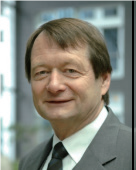 Otthein Herzog received his MSc (Diploma) in Mathematics from the University of Bonn, Germany in 1972, and his PhD in Computer Science from the University of Dortmund, Germany, in 1976.
Otthein Herzog received his MSc (Diploma) in Mathematics from the University of Bonn, Germany in 1972, and his PhD in Computer Science from the University of Dortmund, Germany, in 1976.
From 1977 to 1993, he worked for IBM Germany in various technical and managerial positions in software development where he was responsible for software product development and, from 1986 to 1993, for research and development of advanced knowledge-based systems while he directed the IBM Institute for Knowledge-based Systems in the IBM Scientific Center founded by him.
From 1993 to 2009 he held the position of the chaired professor of Artificial Intelligence at the University of Bremen, Germany, where he was the founder and director of the research and technology transfer institute TZI – Center for Information and Communication Technologies from 1995 to 2009 with more than 160 fulltime researchers.
He was the Co-PI and director (together with Prof. Scholz-Reiter) of the DFG-funded Collaborative Research Center (SFB) 637 on “Autonomous Cooperating Logistic Processes” from 2004 to 2014, and among many other international projects, he directed the EU Integrated Project “Wearable Information Technology at Work” from 2004 to 2009 with 42 European partners.
He continues to work as a research professor at the University of Bremen, and since 2010, he also holds the Wisdom Professorship of Visual Information Technologies at Jacobs University Bremen. In 1998, he became affiliate professor in the Machine Learning and Inference Laboratory of George Mason University, Fairfax, VA, USA, and since 2015, he holds a honorary professorship at CIUC, Tongji University, Shanghai, as National Senior International Expert.
His current research interests include Knowledge Management and coordination through Multi-Agent Systems for Industry 4.0 and Logistics 4.0, ICT for Smart Cities, Wearable Computing for work processes and health as well as AAL applications, and the semantic analysis of images andvideos. In these research fields he has (co-)authored more than 260 refereed scientific publications.Since 2006, Dr. Herzog is Fellow of acatech – German National Academy of Science and Engineering, where he is involved in the current projects on Industry 4.0 and Big Data. He also served at the Acatech Board from 2011 to 2013 and serves as the Vice Chairman of the acatech Topical Network Information and Communication Technologies. He is elected Fellow of GI – German National Computer Society since 2008, and member of the ACM and DAGM. Since many years,he also serveson various boards of German research institutions, and since 2015, on the Governing Board of IKCEST - International Knowledge Centre for Engineering Sciences and Technology, Beijing, China.
Original Text (This is the original text for your reference.)
Yunhe PAN
 Yunhe Pan (1946.11.4 - ), born in Hangzhou, Zhejiang Province, is an expert in computer application. He graduated from the Department of Architecture, Tongji University, Shanghai in 1970. After graduating as master of Computer Science in Zhejiang University in 1981, he served there as a professor, Chairman of Computer Science & Engineering Department, and Directors of Artificial Intelligence Institute and Industrial Design Institute of Zhejiang University. From May 1995 to August 2006, he served as the President of Zhejiang University. From June 2006 to June 2014, he served as the Executive Vice President of the Chinese Academy of Engineering. He is a member of CPPCC Standing Committee and Director of CPPCC’s Foreign Affairs Committee from March 2013. He is also a member of the Academic Degrees Committee of China’s State Council, Vice Chair of China Economic and Social Council, Director-General of the China Association of Inventions, Director-General of Innovation Design Alliance of China and the Honorary Director-General of China Image and Graphics Association.
Yunhe Pan (1946.11.4 - ), born in Hangzhou, Zhejiang Province, is an expert in computer application. He graduated from the Department of Architecture, Tongji University, Shanghai in 1970. After graduating as master of Computer Science in Zhejiang University in 1981, he served there as a professor, Chairman of Computer Science & Engineering Department, and Directors of Artificial Intelligence Institute and Industrial Design Institute of Zhejiang University. From May 1995 to August 2006, he served as the President of Zhejiang University. From June 2006 to June 2014, he served as the Executive Vice President of the Chinese Academy of Engineering. He is a member of CPPCC Standing Committee and Director of CPPCC’s Foreign Affairs Committee from March 2013. He is also a member of the Academic Degrees Committee of China’s State Council, Vice Chair of China Economic and Social Council, Director-General of the China Association of Inventions, Director-General of Innovation Design Alliance of China and the Honorary Director-General of China Image and Graphics Association.
Yunhe Pan is one of the pioneers in the field of intelligent CAD and computer arts. He has been engaged in computer graphics, computeraided design, artificial intelligence and industrial design research for a long time. He has undertaken many important research projects, published many articles and achieved serious important research results in the fields of computer art, intelligent CAD, digital heritage preservation, and digital libraries, which had won several national, provincial and ministerial level scientific and technological awards.
Yunhe Pan was elected as the member of the Chinese Academy of Engineering in 1997.
Raj Reddy
 Dr. Raj Reddy is the MozahBint Nasser University Professor of Computer Science and Robotics in the School of Computer Science at Carnegie Mellon University. From 1960 to 1963, Dr. Reddy worked as an Applied Science Representative for IBM Corp. in Australia. He was an Assistant Professor of Computer Science at Stanford from 1960 to 1969. He joined the Carnegie Mellon faculty as an Associate Professor of Computer Science in 1969. He became a full Professor in 1973, and a university professor in 1984. He served as the founding Director of the Robotics Institute from 1979 to 1991 and as the Dean of School of Computer Science from 1991 to 1999.
Dr. Raj Reddy is the MozahBint Nasser University Professor of Computer Science and Robotics in the School of Computer Science at Carnegie Mellon University. From 1960 to 1963, Dr. Reddy worked as an Applied Science Representative for IBM Corp. in Australia. He was an Assistant Professor of Computer Science at Stanford from 1960 to 1969. He joined the Carnegie Mellon faculty as an Associate Professor of Computer Science in 1969. He became a full Professor in 1973, and a university professor in 1984. He served as the founding Director of the Robotics Institute from 1979 to 1991 and as the Dean of School of Computer Science from 1991 to 1999.
Dr. Reddy received a BE degree from the Guindy Engineering College of the University of Madras, India in 1958 and an MTech degree from the University of New South Wales, Australia, in 1960. He received a Ph.D. degree in Computer Science from Stanford University in 1966. Dr. Reddy's research interests include the study of human-computer interaction and artificial intelligence. His current research interests include Million Book Digital Library Project; Fiber to The Village Project, and Learning by Doing. His professional honors include: Fellow of the Institute of Electrical and Electronics Engineers, Fellow of the Acoustical Society of America, Fellow of the American Association for Artificial Intelligence, Member of the National Academy of Engineering and Member of the American Academy of Arts and Sciences. He was president of the American Association for Artificial Intelligence from 1987 to 1989. He is a recipient of the IBM Research Ralph Gomory Fellow Award in 1991.
Dr. Reddy was awarded the Legion of Honor by President Mitterand of France in 1984 and Padma Bhushan by President of India in 2001. He was awarded the ACM Turing Award in 1994, the Okawa Prize in 2004, the Honda Prize in 2005, and the Vannevar Bush Award in 2006. He served as co-chair of the President's Information Technology Advisory Committee (PITAC) from 1999 to 2001. He has been awarded honorary doctorates (Doctor of Science HonorisCausa) from SV University, Universite Henri-Poincare, University of New South Wales, Jawaharlal Nehru Technological University, University of Massachusetts, University of Warwick, Anna University and the Indian Institute for Information Technology (Allahabad), Andhra University and IIT Kharagpur. He serves on the Board of Governors of Peres Institute for Peace in Israel.
Bohu Li
 Bohu Li is an expert of computer simulation and integrated manufacturing. He is a professor/doctor director/president of the Institute of Automation Science and Electron Engineering in the Beijing University of Aeronautics and Astronautics; deputy director of the Science and Technology Committee of Second Academy of the China Aerospace Science & Industry Corporation; president of the Chinese Association for System Simulation; and a member of the Advisory Committee of the international journal Simulation Theory & Practice.
Bohu Li is an expert of computer simulation and integrated manufacturing. He is a professor/doctor director/president of the Institute of Automation Science and Electron Engineering in the Beijing University of Aeronautics and Astronautics; deputy director of the Science and Technology Committee of Second Academy of the China Aerospace Science & Industry Corporation; president of the Chinese Association for System Simulation; and a member of the Advisory Committee of the international journal Simulation Theory & Practice.
He was president of the Beijing Institute of Computer Application & Simulation Technology; president of the Beijing Simulation Center; head of the Fifth (1997-2001) China High Tech & Research Plan 863/ Contemporary Integrated Manufacturing System (CIMS) Subject Expert Steering Committee; a member of the Expert Steering Committee of Automation Area in the China High Tech & Research Plan 863; and a member of the directors committee of the Society of System Simulation International.
He authored or co-authored 160 papers, 11 books and 4 translated books in the fields of modeling and simulation, concurrent engineering and contemporary integrated manufacturing system.
He has got one first-class scientific award, two second-class scientific awards and one third-class scientific award by the state, and 10 scientific awards by the Ministry of Aerospace and Astronautics.
Bohu Li was elected as the member of the Chinese Academy of Engineering in 2001.
Bernhard Mueller
 Bernhard Mueller is the Director of the Dresden-based Leibniz Institute of Ecological Urban and Regional Development (IOER) and Professor for Spatial Development at the Technische Universität Dresden. He is also the initiator and head of the Managing Board of the internationally oriented Dresden Leibniz Graduate School (DLGS) which deals with issues of sustainable urban and regional development. Bernhard Mueller has a doctoral degree in Geography from the University of Mainz, and completed his habilitation in urban and regional planning and development at the University of Hanover. He received an honorary doctoral degree from the Slovak University of Technology. His professional interests are in sustainable development as well as urban and regional resilience.
Bernhard Mueller is the Director of the Dresden-based Leibniz Institute of Ecological Urban and Regional Development (IOER) and Professor for Spatial Development at the Technische Universität Dresden. He is also the initiator and head of the Managing Board of the internationally oriented Dresden Leibniz Graduate School (DLGS) which deals with issues of sustainable urban and regional development. Bernhard Mueller has a doctoral degree in Geography from the University of Mainz, and completed his habilitation in urban and regional planning and development at the University of Hanover. He received an honorary doctoral degree from the Slovak University of Technology. His professional interests are in sustainable development as well as urban and regional resilience.
Bernhard Mueller was a Vice President of the Leibniz Association, one of the major non-university research organisations in Germany. He is a member of the German Academy of Science and Engineering (acatech), the Saxonian Academy of Sciences, and the German Academy for Spatial Research and Planning (ARL). He is also an international member of the Serbian Academy of Engineering Sciences. He has been working as an evaluator for several European research programs. He was a member of the Advisory Council for Regional Policy and Planning of the Federal Republic of Germany, and of the Environmental Research Council of the State of Saxony. Currently, he is a member of Policy Unit No. 6 on “Urban Spatial Strategies: Land Market and Segregation” for Habitat III (Quito 2016).
Wen Gao
 Wen Gao is a professor in Computer Science at Peking University and Vice President of the National Natural Science Foundation of China. Before joining Peking University in 2006, he was professor in the Institute of Computing Technology, Chinese Academy of Sciences (1996 -2005) and professor in Harbin Institute of Technology (1991-1995). Wen Gao received his PhD in Electronic Engineering from University of Tokyo in 1991.
Wen Gao is a professor in Computer Science at Peking University and Vice President of the National Natural Science Foundation of China. Before joining Peking University in 2006, he was professor in the Institute of Computing Technology, Chinese Academy of Sciences (1996 -2005) and professor in Harbin Institute of Technology (1991-1995). Wen Gao received his PhD in Electronic Engineering from University of Tokyo in 1991.
Prof. Wen Gao works in the areas of multimedia and computer vision, including video coding, video analysis, multimedia retrieval, face recognition, multimodal interfaces, and virtual reality. He published six books and over 700 technical articles in refereed journals and proceedings in above areas. He earned many awards including six National Awards in Science and Technology Achievements. He has been featured by IEEE Spectrum in June 2005 as one of the "Ten To Watch" among China's leading technologists. He is a fellow of IEEE, a fellow of ACM, and a member of Chinese Academy of Engineering.
Gary Hack
 Gary Hack is a planner and urban designer with broad experience in shaping urban development in cities of all sizes. He is a former principal of Carr Lynch Hack and Sandell in Cambridge, and dean emeritus of the School of Design, University of Pennsylvania. He is currently professor emeritus at Penn and MIT, and a visiting professor of urban design at Tsinghua University in Beijing and Chongqing University.
Gary Hack is a planner and urban designer with broad experience in shaping urban development in cities of all sizes. He is a former principal of Carr Lynch Hack and Sandell in Cambridge, and dean emeritus of the School of Design, University of Pennsylvania. He is currently professor emeritus at Penn and MIT, and a visiting professor of urban design at Tsinghua University in Beijing and Chongqing University.
He has practiced urban design in over 40 cities of the world, focusing on waterfront planning, mixed use developments, residential developments, and downtown revitalization. His projects include planning the redevelopment of Prudential Center Boston, planning the West Side Waterfront in New York and Rockefeller Park at Battery Park City, and a new metropolitan plan for Bangkok Thailand. He collaborated with Studio Libeskind on the winning design for rebuilding the World Trade Center in New York and headed the team preparing the design guidelines that are shaping the ongoing development. His recent work includes preparing a transportation vision for the Longwood Medical Area in Boston, a new central area plan for Bogota, Colombia and an ecological new town in Southwest Russia. His recent research includes a studies of cultural districts in China and the performance of walkable local commercial centers in the US.
Gary Hack is the co-author of Local Planning, Site Planning, Global City Regions, and Urban Design in an International Context and many articles and chapters. He has taught at Penn, MIT, Tsinghua and Chongqing University, and lectured widely. He has served as chair of the Philadelphia City Planning Commission and serves on many boards. Gary Hack received his B.Arch from the University of Manitoba, a M.Arch and M.U.P from the University of Illinois, and a PhD in urban studies and planning from MIT. In 2006, he was awarded an honorary Doctor of Laws degree at Dalhousie University.
Zhiqiang Wu
 Prof. Zhiqiang Wu gets his Doctor's degree from Technical University of Berlin and currently is Vice President of Tongji University, professor and doctoral tutor of College of Architecture and Urban Planning, Academician of Royal Swedish Academy of Engineering Science, and Honorary Fellow of American Institute of Architects. He also serves as Chief Planner of EXPO 2010 Shanghai, Co-Chair of International Steering Committee of World Planning School Congress, Permanent Member of UNESCO-UIA World Architectural Education Council, Member of Advisory Committee - Creative Economy-United Nations Special Unit for South-South Cooperation, UNDP, Vice President of Urban Planning Society of China, Vice President of China Association of Building Energy Efficiency, Vice President of China Green Building Council and Director of CGBC Green Campus Committee.
Prof. Zhiqiang Wu gets his Doctor's degree from Technical University of Berlin and currently is Vice President of Tongji University, professor and doctoral tutor of College of Architecture and Urban Planning, Academician of Royal Swedish Academy of Engineering Science, and Honorary Fellow of American Institute of Architects. He also serves as Chief Planner of EXPO 2010 Shanghai, Co-Chair of International Steering Committee of World Planning School Congress, Permanent Member of UNESCO-UIA World Architectural Education Council, Member of Advisory Committee - Creative Economy-United Nations Special Unit for South-South Cooperation, UNDP, Vice President of Urban Planning Society of China, Vice President of China Association of Building Energy Efficiency, Vice President of China Green Building Council and Director of CGBC Green Campus Committee.
Otthein Herzog
 Otthein Herzog received his MSc (Diploma) in Mathematics from the University of Bonn, Germany in 1972, and his PhD in Computer Science from the University of Dortmund, Germany, in 1976.
Otthein Herzog received his MSc (Diploma) in Mathematics from the University of Bonn, Germany in 1972, and his PhD in Computer Science from the University of Dortmund, Germany, in 1976.
From 1977 to 1993, he worked for IBM Germany in various technical and managerial positions in software development where he was responsible for software product development and, from 1986 to 1993, for research and development of advanced knowledge-based systems while he directed the IBM Institute for Knowledge-based Systems in the IBM Scientific Center founded by him.
From 1993 to 2009 he held the position of the chaired professor of Artificial Intelligence at the University of Bremen, Germany, where he was the founder and director of the research and technology transfer institute TZI – Center for Information and Communication Technologies from 1995 to 2009 with more than 160 fulltime researchers.
He was the Co-PI and director (together with Prof. Scholz-Reiter) of the DFG-funded Collaborative Research Center (SFB) 637 on “Autonomous Cooperating Logistic Processes” from 2004 to 2014, and among many other international projects, he directed the EU Integrated Project “Wearable Information Technology at Work” from 2004 to 2009 with 42 European partners.
He continues to work as a research professor at the University of Bremen, and since 2010, he also holds the Wisdom Professorship of Visual Information Technologies at Jacobs University Bremen. In 1998, he became affiliate professor in the Machine Learning and Inference Laboratory of George Mason University, Fairfax, VA, USA, and since 2015, he holds a honorary professorship at CIUC, Tongji University, Shanghai, as National Senior International Expert.
His current research interests include Knowledge Management and coordination through Multi-Agent Systems for Industry 4.0 and Logistics 4.0, ICT for Smart Cities, Wearable Computing for work processes and health as well as AAL applications, and the semantic analysis of images andvideos. In these research fields he has (co-)authored more than 260 refereed scientific publications.Since 2006, Dr. Herzog is Fellow of acatech – German National Academy of Science and Engineering, where he is involved in the current projects on Industry 4.0 and Big Data. He also served at the Acatech Board from 2011 to 2013 and serves as the Vice Chairman of the acatech Topical Network Information and Communication Technologies. He is elected Fellow of GI – German National Computer Society since 2008, and member of the ACM and DAGM. Since many years,he also serveson various boards of German research institutions, and since 2015, on the Governing Board of IKCEST - International Knowledge Centre for Engineering Sciences and Technology, Beijing, China.
 Yunhe Pan (1946.11.4 - ), born in Hangzhou, Zhejiang Province, is an expert in computer application. He graduated from the Department of Architecture, Tongji University, Shanghai in 1970. After graduating as master of Computer Science in Zhejiang University in 1981, he served there as a professor, Chairman of Computer Science & Engineering Department, and Directors of Artificial Intelligence Institute and Industrial Design Institute of Zhejiang University. From May 1995 to August 2006, he served as the President of Zhejiang University. From June 2006 to June 2014, he served as the Executive Vice President of the Chinese Academy of Engineering. He is a member of CPPCC Standing Committee and Director of CPPCC’s Foreign Affairs Committee from March 2013. He is also a member of the Academic Degrees Committee of China’s State Council, Vice Chair of China Economic and Social Council, Director-General of the China Association of Inventions, Director-General of Innovation Design Alliance of China and the Honorary Director-General of China Image and Graphics Association.
Yunhe Pan (1946.11.4 - ), born in Hangzhou, Zhejiang Province, is an expert in computer application. He graduated from the Department of Architecture, Tongji University, Shanghai in 1970. After graduating as master of Computer Science in Zhejiang University in 1981, he served there as a professor, Chairman of Computer Science & Engineering Department, and Directors of Artificial Intelligence Institute and Industrial Design Institute of Zhejiang University. From May 1995 to August 2006, he served as the President of Zhejiang University. From June 2006 to June 2014, he served as the Executive Vice President of the Chinese Academy of Engineering. He is a member of CPPCC Standing Committee and Director of CPPCC’s Foreign Affairs Committee from March 2013. He is also a member of the Academic Degrees Committee of China’s State Council, Vice Chair of China Economic and Social Council, Director-General of the China Association of Inventions, Director-General of Innovation Design Alliance of China and the Honorary Director-General of China Image and Graphics Association. Dr. Raj Reddy is the MozahBint Nasser University Professor of Computer Science and Robotics in the School of Computer Science at Carnegie Mellon University. From 1960 to 1963, Dr. Reddy worked as an Applied Science Representative for IBM Corp. in Australia. He was an Assistant Professor of Computer Science at Stanford from 1960 to 1969. He joined the Carnegie Mellon faculty as an Associate Professor of Computer Science in 1969. He became a full Professor in 1973, and a university professor in 1984. He served as the founding Director of the Robotics Institute from 1979 to 1991 and as the Dean of School of Computer Science from 1991 to 1999.
Dr. Raj Reddy is the MozahBint Nasser University Professor of Computer Science and Robotics in the School of Computer Science at Carnegie Mellon University. From 1960 to 1963, Dr. Reddy worked as an Applied Science Representative for IBM Corp. in Australia. He was an Assistant Professor of Computer Science at Stanford from 1960 to 1969. He joined the Carnegie Mellon faculty as an Associate Professor of Computer Science in 1969. He became a full Professor in 1973, and a university professor in 1984. He served as the founding Director of the Robotics Institute from 1979 to 1991 and as the Dean of School of Computer Science from 1991 to 1999. Bohu Li is an expert of computer simulation and integrated manufacturing. He is a professor/doctor director/president of the Institute of Automation Science and Electron Engineering in the Beijing University of Aeronautics and Astronautics; deputy director of the Science and Technology Committee of Second Academy of the China Aerospace Science & Industry Corporation; president of the Chinese Association for System Simulation; and a member of the Advisory Committee of the international journal Simulation Theory & Practice.
Bohu Li is an expert of computer simulation and integrated manufacturing. He is a professor/doctor director/president of the Institute of Automation Science and Electron Engineering in the Beijing University of Aeronautics and Astronautics; deputy director of the Science and Technology Committee of Second Academy of the China Aerospace Science & Industry Corporation; president of the Chinese Association for System Simulation; and a member of the Advisory Committee of the international journal Simulation Theory & Practice. Bernhard Mueller is the Director of the Dresden-based Leibniz Institute of Ecological Urban and Regional Development (IOER) and Professor for Spatial Development at the Technische Universität Dresden. He is also the initiator and head of the Managing Board of the internationally oriented Dresden Leibniz Graduate School (DLGS) which deals with issues of sustainable urban and regional development. Bernhard Mueller has a doctoral degree in Geography from the University of Mainz, and completed his habilitation in urban and regional planning and development at the University of Hanover. He received an honorary doctoral degree from the Slovak University of Technology. His professional interests are in sustainable development as well as urban and regional resilience.
Bernhard Mueller is the Director of the Dresden-based Leibniz Institute of Ecological Urban and Regional Development (IOER) and Professor for Spatial Development at the Technische Universität Dresden. He is also the initiator and head of the Managing Board of the internationally oriented Dresden Leibniz Graduate School (DLGS) which deals with issues of sustainable urban and regional development. Bernhard Mueller has a doctoral degree in Geography from the University of Mainz, and completed his habilitation in urban and regional planning and development at the University of Hanover. He received an honorary doctoral degree from the Slovak University of Technology. His professional interests are in sustainable development as well as urban and regional resilience. Wen Gao is a professor in Computer Science at Peking University and Vice President of the National Natural Science Foundation of China. Before joining Peking University in 2006, he was professor in the Institute of Computing Technology, Chinese Academy of Sciences (1996 -2005) and professor in Harbin Institute of Technology (1991-1995). Wen Gao received his PhD in Electronic Engineering from University of Tokyo in 1991.
Wen Gao is a professor in Computer Science at Peking University and Vice President of the National Natural Science Foundation of China. Before joining Peking University in 2006, he was professor in the Institute of Computing Technology, Chinese Academy of Sciences (1996 -2005) and professor in Harbin Institute of Technology (1991-1995). Wen Gao received his PhD in Electronic Engineering from University of Tokyo in 1991. Gary Hack is a planner and urban designer with broad experience in shaping urban development in cities of all sizes. He is a former principal of Carr Lynch Hack and Sandell in Cambridge, and dean emeritus of the School of Design, University of Pennsylvania. He is currently professor emeritus at Penn and MIT, and a visiting professor of urban design at Tsinghua University in Beijing and Chongqing University.
Gary Hack is a planner and urban designer with broad experience in shaping urban development in cities of all sizes. He is a former principal of Carr Lynch Hack and Sandell in Cambridge, and dean emeritus of the School of Design, University of Pennsylvania. He is currently professor emeritus at Penn and MIT, and a visiting professor of urban design at Tsinghua University in Beijing and Chongqing University. Prof. Zhiqiang Wu gets his Doctor's degree from Technical University of Berlin and currently is Vice President of Tongji University, professor and doctoral tutor of College of Architecture and Urban Planning, Academician of Royal Swedish Academy of Engineering Science, and Honorary Fellow of American Institute of Architects. He also serves as Chief Planner of EXPO 2010 Shanghai, Co-Chair of International Steering Committee of World Planning School Congress, Permanent Member of UNESCO-UIA World Architectural Education Council, Member of Advisory Committee - Creative Economy-United Nations Special Unit for South-South Cooperation, UNDP, Vice President of Urban Planning Society of China, Vice President of China Association of Building Energy Efficiency, Vice President of China Green Building Council and Director of CGBC Green Campus Committee.
Prof. Zhiqiang Wu gets his Doctor's degree from Technical University of Berlin and currently is Vice President of Tongji University, professor and doctoral tutor of College of Architecture and Urban Planning, Academician of Royal Swedish Academy of Engineering Science, and Honorary Fellow of American Institute of Architects. He also serves as Chief Planner of EXPO 2010 Shanghai, Co-Chair of International Steering Committee of World Planning School Congress, Permanent Member of UNESCO-UIA World Architectural Education Council, Member of Advisory Committee - Creative Economy-United Nations Special Unit for South-South Cooperation, UNDP, Vice President of Urban Planning Society of China, Vice President of China Association of Building Energy Efficiency, Vice President of China Green Building Council and Director of CGBC Green Campus Committee. Otthein Herzog received his MSc (Diploma) in Mathematics from the University of Bonn, Germany in 1972, and his PhD in Computer Science from the University of Dortmund, Germany, in 1976.
Otthein Herzog received his MSc (Diploma) in Mathematics from the University of Bonn, Germany in 1972, and his PhD in Computer Science from the University of Dortmund, Germany, in 1976.







 User Center
User Center My Training Class
My Training Class Feedback
Feedback











Comments
Something to say?
Login or Sign up for free